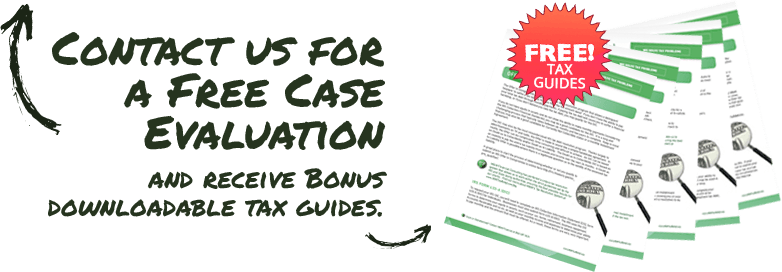IRS Tax Liens and Removal
Tax liens cause a lot of trouble for struggling taxpayers, both individuals and businesses. In this blog post we’re going to discuss what a tax lien is, how it may affect you and how to get rid of it.
What Is a Tax Lien?
Once past due tax is assessed, the IRS collection machine begins moving forward. A tax lien is a major step in the process. It is the government’s security for payment of past due taxes. There are two types of tax liens. A Statutory Tax Lien and a Notice of Federal Tax Lien (NFTL).
The idea of a statutory tax lien can be difficult to grasp because it isn’t tangible. It exists without the IRS filing a document with any federal, state, city or county office.
Before a statutory lien exists, the IRS must:
- Assess a tax liability to you,
- Send you a Notice and Demand for Payment, and
- You must neglect or refuse to pay the tax debt within 60 days.
A NFTL publicly records the tax lien and secures the IRS’ priority amongst other creditors. This is when the tax lien causes real trouble for delinquent taxpayers. It's also when the phone calls and mailers start pouring in from tax resolution firms.
It is important to know the difference between a lien and a levy. A lien secures the IRS position as a creditor. A levy seizes funds from a bank account, A/R and/or wages. Keep in mind that a tax lien does not have to precede a levy by the IRS. The IRS forms for liens and levies have very similar names.
- 668(Y) – NFTL
- 668(A), bank account levy
- 668(W) wage garnishment
How Will an IRS Tax Lien Affect Me?
A NFTL may affect your credit score, ability to borrow, ability to rent a residence, ability to sell assets such as a car or home and more. If a business has a factoring agreement or if it has a line of credit secured by A/R, a tax lien can shut its doors. Factoring companies must have a formal resolution to their client’s tax debt in place within 45 days of the NFTL filing date or funding to the delinquent business will completely stop. Some factoring companies may also require a Subordination. The same is true with many banks holding a line of credit secured by a company’s A/R. The bank may choose to pull the line of credit and collect the full balance due immediately.
Businesses may also have to worry about paying their vendors. We often see businesses that are no longer offered credit from vendors and must pay up front for all goods after a NFTL has been filed. If you owe your vendors for goods you’ve already used or sold, this could be a bad spot to be in. Even if you’re vendors are all paid up, sometimes credit is the only way to manage larger projects.
How Do I Get Rid of My IRS Tax Lien?
Full Pay
The no-brainer way to get rid of your tax lien is to pay your tax debt in full. The IRS will release your tax lien within 30 days. This option is impossible for many struggling taxpayers.
Withdrawal
Some taxpayers may qualify for a lien withdrawal. This often applies to individuals that have entered into a Direct Debit Installment Agreement and has successfully made three consecutive payments. Use IRS form 12277 to request your Lien Withdrawal.
Subordination
In certain situations, the IRS will give up its lien position to facilitate the collection of the tax or allow the taxpayer to avoid a hardship. See IRS Publication 784 for more information.
Certificate of Discharge (COD)
A Certificate of Discharge of Federal Tax Lien is useful when selling an asset. The IRS may agree to discharge the lien on one specific asset and leave the rest of the lien intact. Use IRS Publication 783 and IRS Form 14135 to request an IRS COD.
Non-attachment of Federal Tax Lien
This option is useful when the wrong person has a NFTL filed against them. It often happens with parents and their children with similar names. See IRS Publication 1024 to request an IRS Nonattachment of Federal Tax Lien.
How Do I Avoid an IRS Tax Lien?
If back-tax is owed, you’ve gotta talk to the IRS before a NFTL is filed to avoid a tax lien. You may need to go to IRS Appeals to accomplish it.
Some businesses (such as car dealerships) may be able to avoid a NFTL if it has a floor plan or other contract with lien language. Both businesses and individuals may be able to avoid a tax lien if it would cause hardship or prevent the payment of tax.
How do we know all of this? It’s our job to know it. M&M can help you with your tax debt and let you know if and how you qualify to lessen the burden of your tax lien. Call us today for a confidential consultation at 866-487-5624 or 773-969-5825.








